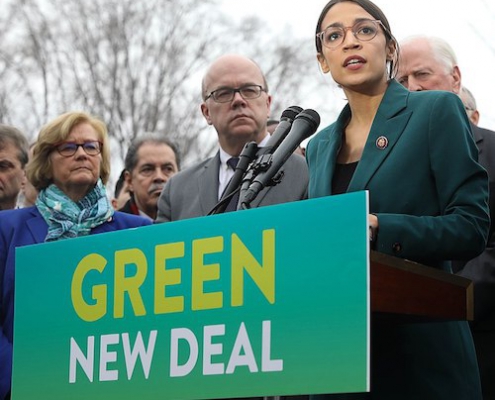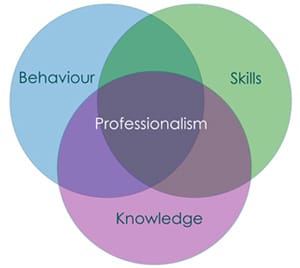Tag Archive for: conflicts of interest

The Psychology of Ford’s Fiesta and Focus Cover-Up
Blog
Socialism and Conflicts of Interest
Blog
Is Political Ideology a Compliance and Ethics Risk?
Blog Cross posted with permission from ES Collaborator Jeffrey Kaplan's Conflict of Interest blog
Cross posted with permission from ES Collaborator Jeffrey Kaplan's Conflict of Interest blog
In a post last week on the Harvard Law School Forum on Corporate Governance and Financial Regulation, Danling Jiang, Associate Professor of Finance at Florida State University, summarizes a recent article she authored with Irena Hutton, Associate Professor of Finance at Florida State University; and Alok Kumar, Professor of Finance at the University of Miami: “Political Values, Culture, and Corporate Litigation,” which was published in the latest issue of Management Science and which “examine[s] whether the political culture of a firm defines its ethical and legal boundaries as observed by the propensity for corporate misconduct.”
In a post last week on the Harvard Law School Forum on Corporate Governance and Financial Regulation, Danling Jiang, Associate Professor of Finance at Florida State University said of recent research, “Using one of the largest samples of litigation data to date, [they] show that firms with Republican culture are more likely to be the subject of civil rights, labor, and environmental litigation than Democratic firms, consistent with the Democratic ideology that emphasizes equal rights, labor rights, and environmental protection. However, firms with Democratic culture are more likely to be the subject of litigation related to securities fraud and intellectual property rights violations than Republican firms whose Party ideology stresses self-reliance, property rights, market discipline, and limited government regulation.”
This is interesting – if not necessarily surprising – stuff, and particularly so in an election year. But does it bear on the work of C&E professionals? And does it have anything to do with conflicts of interest?

Point-of-Risk Compliance
BlogThis piece is cross posted from ES collaborator Jeffrey Kaplan's "Conflicts of Interest" blog with permission.
Marketers have long known that “point-of-sale” display of products can be a powerful advertising tool. But can its logic be put to work for promoting compliance and ethics?
I was recently asked by a client to fill out a vendor information form and noticed that in addition to seeking information from vendors the form required the employee proposing the hiring to certify that any conflict of interest involving the vendor had been disclosed and okayed by management and the C&E officer. While I know that many companies have some form of COI certifications (see prior posts), I can’t recall having seen one on a vendor information form of this sort before – even though the common sense of such a “point-of-risk” compliance approach seems pretty obvious. Indeed, it is hard to think of any reason why a company wouldn’t do this.

Professionalism and Ethics: A missed connection?
Blog What does professionalism mean to you? Often, people who identify as a professional think of themselves not only as knowledgeable in their discipline, but also rational, objective and serving a higher purpose (e.g., the client’s needs). These are laudable goals, but new research shows that these characteristics could actually lead to people making self-interested, and ultimately unethical or damaging, decisions.
What does professionalism mean to you? Often, people who identify as a professional think of themselves not only as knowledgeable in their discipline, but also rational, objective and serving a higher purpose (e.g., the client’s needs). These are laudable goals, but new research shows that these characteristics could actually lead to people making self-interested, and ultimately unethical or damaging, decisions.
In a paper on Professionalism and Moral Behavior, Maryam Kouchaki of the Kellogg School of Management at Northwestern University, tests the hypothesis that an emphasis on one's professional identity has a greater likelihood of an individual engaging in unethical behavior. This is an important inquiry in light of ethical failures in companies where lawyers and accountants often act as “gatekeepers” on ethics and compliance issues vis a vis corporate practices. Based on evidence from her lab studies and employee surveys, Kouchaki concludes that priming professionalism may actually lead to increased misbehavior.

Featured Collaborator of the Month: Daylian Cain
Blog I study judgment and decision making, or, as I like to say, “why good people do bad things, and why smart people do dumb things.” Much of my work is on conflicts of interest and how they are problems not only for the intentionally corrupt but also for well-meaning professionals who fall prey to unintentional bias.
I study judgment and decision making, or, as I like to say, “why good people do bad things, and why smart people do dumb things.” Much of my work is on conflicts of interest and how they are problems not only for the intentionally corrupt but also for well-meaning professionals who fall prey to unintentional bias.
